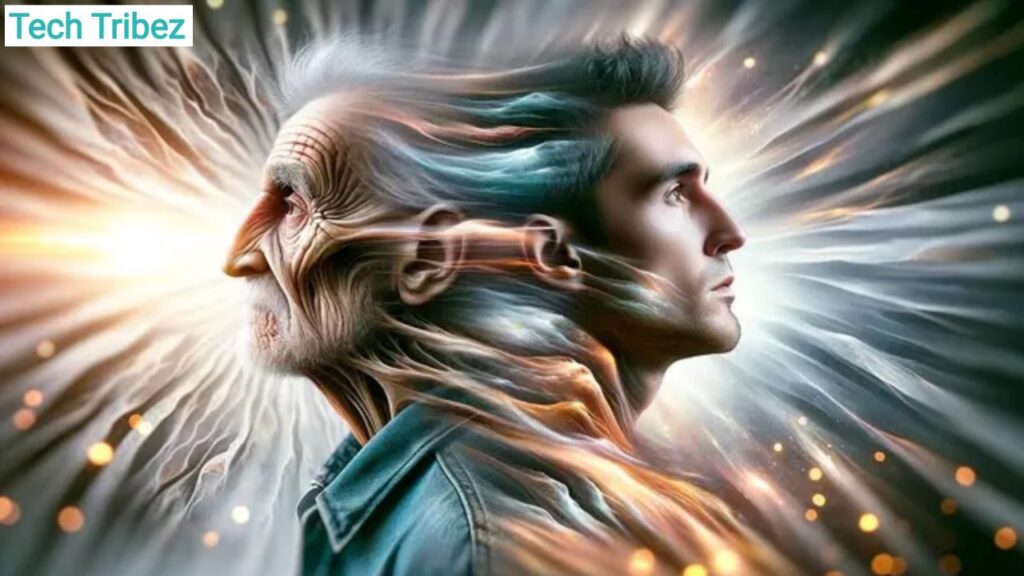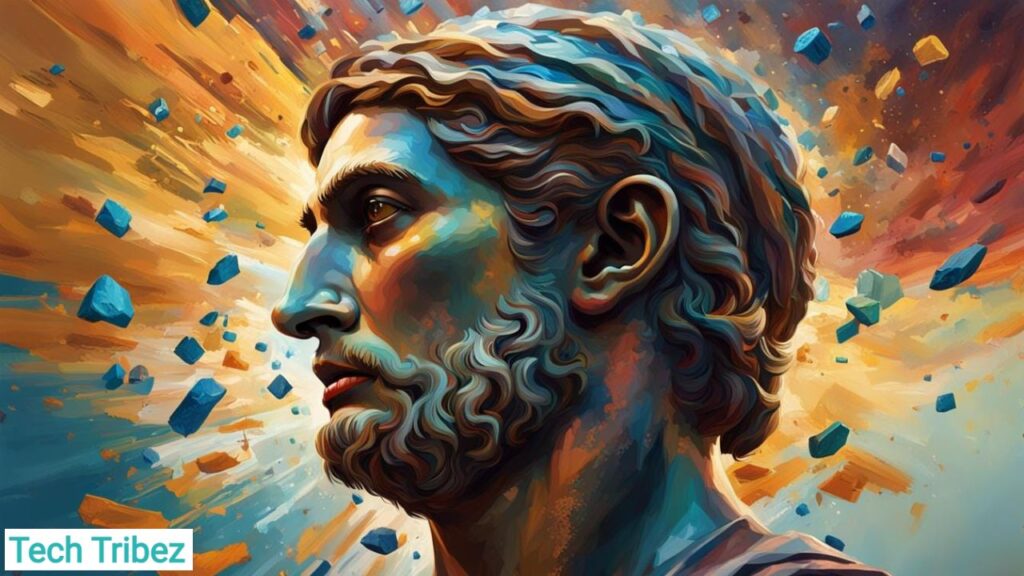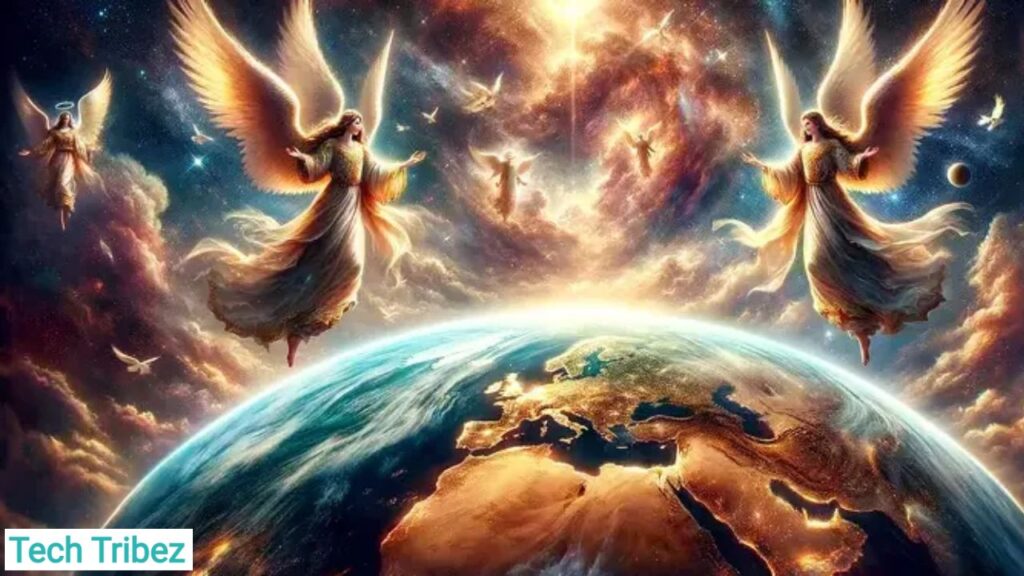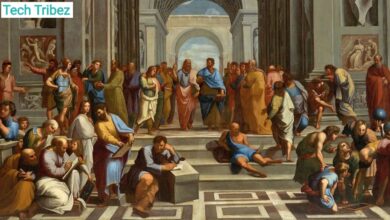Immortals: Exploring Myths, History, and the Quest for Eternal Life

The idea of people’s lives being eternal has always inspired people and can be seen in myths and religious works, as well as in popular science books like by Dan Brown. Eternal life elicited vivid images of the supreme gods and glorious supertowers beyond death’s power. Why have people been interested in beings that cannot die, in gods and goddesses alike, as the characters of this Text? This relates to going through this article, which defines immortals as people who do not die in mythology, history, science, and movies. From where these myths emerged, the most popular immortals and education on the topic of the search for immortality. Last, we must discuss how immortality affects ethical and spiritual aspects of people’s lives and whether society is ready for such radical change.
What Are Immortals? A Journey Through Ancient Beliefs and Modern Fascination
In mythology of, folklore, and popular culture, immortals are people who are resistant to death. In ancient cultures, immortals indicated deities, demigods, or supernatural beings possessing godlike characteristics and living among them in varying capacities. In Greek mythology, immortals are those deities such as Zeus and Athena who, having indissoluble abode on Mount Olympus, affected the world of mortals. In Eastern cultures, it is easy to say that monks, philosophers and sages such as the Taoist Immortals described in Chinese mythology depict the embodiment of wisdom and spiritual authority. The interest in immortals changed over time and shifted focus to vampires, ghosts and other creatures possibly avoiding death. Immortality in contemporary culture – is reflected in films, books and media since people are searching for a chance to live more through science. From gene manipulation to AI and back, today’s search for the fountain of youth looks increasingly achievable. To die is to lose, and we have been endowed with a constant urge to overcome the one loss that man cannot afford, the loss of life, through extending the life span or transferring consciousness into a nonbiological body.
Also Read: El Camino hacia el Terror: Secretos, Misterios y Siniestros Enigmas que Debes Conocer
The Origins of Immortality: Myths and Legends Across Cultures
The Early Ages knew many myths associated with immortality, which, in specific historical cultures, is considered a gift from gods or the receipt of unique rites. The Sumerian mythology tells of Gilgamesh, a man with the physical strength of a god who seeks eternal life, a concept this paper will examine as one of the primary themes for humans. Hear that after being blessed by the gods with better knowledge of the universe, Gilgamesh meets a man named Utnapishtim, who received eternal life as a gift from the gods. Death is one central aspect of Egyptian prehistoric culture – Egyptians tried to reach immortality. After death, the body had to be preserved, mummified, and placed in a coffin so that the soul could travel through the afterlife. Likewise, Hindu mythology tells the listeners about various gods, such as Brahma, Vishnu, and others, with no time parameters attached. These myths show not only interest in people’s desire for immortality but also the views of society on the soul, sin, and God’s blessings. Mythological accounts of immortals show how people of every culture have a quest to comprehend the end, the hereafter, and the ability to attain life beyond physical death.
Famous Immortal Beings in Mythology: From Gods to Heroes
As many cultures reflect, it is easy to depict infinite existence since gods, archetypes of each cosmological concept, and epic heroes who received immortality for their achievements are represented. The Greek heroes such as the Olympian and the Titan Prometheus are portrayed as mystical creatures expected to exercise massive powers. Prometheus’s theme affirms the positive result of divination, but such a reward entails endless suffering. However, it also includes a few immortals like Hanuman, a monkey god revered for strength and loyalty. The good gods, such as Odin and Thor, are depicted as immortal but can die due to Ragnarok, the Armageddon, according to the Norse mytheme. They are used to describe culture in that they reflect facets of society and the desire that society holds. Every immortal symbolizes power, wisdom, or sacrifice, and all of them use their stories to depict the hardship and consequences of immortality visibly. Several lessons may be learned about the state of the art in culture for the ancients by observing these immortals and their appreciation of the supernatural and the divine.
Immortality in History: Stories of Legendary Figures Who Defied Death
Historical sources, in addition to myths, describe many characters who either secured mythical status due to their accomplishments or were thought to be immortal. One is a fable famous in Europe about Saint Germain, who was said to have been alive from the 16th century and has several potions, including the ‘fountain of youth’. In China’s history, there is a similar story of Qin Shi Huang, the first emperor of China, who searched for the pill ofwhoisearchedlity. However, all these attempts did not achieve their intended goal, and the unfortunate tales remain to immortalize them as persons pursuing immortality. A similar example is Nicholas Flamel, an alchemist from France who discovered the elixir of life or the Philosopher’s Stone. While such figures belong to myth, they have been responsible for actual historical attempts to seek life’s elixir. These legendary immortals mirror man’s timeless dream of living a longer life and the ability to avoid dying. They bring to our consciousness the passion humans have had to discover life’s unknowns, especially the never-ending quest for immortality.
The Science of Immortality: Could Humans Live Forever?

We are constantly discovering or already witnessing the prologue of what may soon be a reality where humans could live much longer or even become biologically immortal. Scientists investigate cellular ageing, paying attention to telomeres, protective caps on the tip of a chromosome that make them shorter than a cell phone. Scientists seek to slow telomere attrition to gain an additional year of existence. Others study cryonics, which is preserving people’s bodies after their demise to revive them at a later date. Other technologies such as artificial intelligence and nanotechnology and the growth of stem cells also form the search for the optimum life span of humans. Some are researching something called “transhumanism”, which is the concept that humans can push their physical boundaries if only to merge with technology. This pursuit raises questions such as Contemporary What does it mean to be human? Is immortality possible? Of course, scientific immortality is still far off, but such advances are increasingly opening up opportunities. Yet, the overtone of ethical issues emerges when thinking about the consequences of the given notion of eternity in terms of society and personality.
Immortals in Pop Culture: How Films, Books, and Games Portray Eternal Life
Immortals have become iconic figures in pop culture, portrayed in films, books, and games as beings with unique abilities, vulnerabilities, and perspectives on life. Popular franchises like Marvel’s Thor and The Lord of the Rings depict immortals as powerful beings with moral responsibilities, while vampire stories like Dracula and Twilight explore immortality’s darker side. In films, immortality is often described as a double-edged sword, with characters facing loneliness or moral dilemmas as they outlive loved ones. Video games like Assassin’s Creed use immortal or ageless characters to explore history and ethics. These portrayals reflect society’s complex relationship with immortality, highlighting its allure and challenges. By dramatizing eternal life, pop culture invites audiences to ponder whether immortality would enhance or detract from the human experience, showing how timeless beings might struggle to retain humanity over endless lifespans.
The Quest for Eternal Life: From Alchemy to Modern Medicine
In one way or another, alchemists and scientists have always been searching for the answer to the search for the fountain of youth. Approved in some ancient Asian, African and European countries, alchemy aimed at finding the Philosopher’s Stone that represented the elixir of life. In ancient China, Taoist alchemists attempted to gain immortality by acquiring the potions that would make you young again. Despite the efforts of the early alchemists, their earlier efforts made way for the advancement of modern chemistry. Today, medicine seeks longevity through knowledge of diseases, improved robustness of genomes, and novel treatments and maintenance of life-lengthening procedures. In techniques ranging from stem cell research to gene editing, scientists step up efforts to slow what could be one of the most significant enemies of man – ageing. Some visionaries themselves imagine transplanting human consciousness into computers and becoming immortal. This goal is as yet unattainable, yet the pursuit goes unabated – for whatever reasons ancient alchemists did, this search persists. The mixture of prehistoric culture and contemporary science demonstrates that as long as man wants to become immortal and solve the riddles of life.
Ethical Questions Around Immortality: Would Eternal Life Be a Blessing or a Curse?

This idea brings the ethical concerns of what would happen if people lived in a world close to one another forever and annulment. The implications for existence if people were to live forever could be depressing, should living forever become possible: overpopulation, depletion of resources, and the widening gap between rich and poor resulting in social inequality. It can also create psychological issues such as boredom, loss, and identity crises because people can live for centuries. Grief may be produced as individuals outlive their friends and kin or become marginalized. Some ethicists say life makes sense through death, which makes life sense in a specific period. What if life had no mortality; will life’s worth decrease? All these ethical concerns speak to how people should also think about the implications of eternal life. Finally, immortality may not be for everyone, and society must decide whether attaining this fountain of youth is suitable for people and the generations to come.
Religious Perspectives on Immortality: How Different Faiths View Eternal Life
What people believe concerning the afterlife is relative to the specific culture and religion where it originated, and most religions teach about eternal life, although not in its physical form. In Christianity, immortality is achieved through being saved and receiving life after death or eternal life in heaven. The Hindu religion also sees personal immortality as moksha, that is, liberation from the rounds of rebirth and identification with the divine. In Buddhism, there is no concept, such as life after death, to live forever, and they consider immortality in the sense of deliverance from the cycle of birth and death, attained through enlightenment. Such beliefs imply that immortality is an otherworldly quest as opposed to the infinity of life. Some religions, such as Taoism, have both physical and spiritual, and the Taoist seekers seek the alchemy of nature to attain eternal life. This paper compares and contrasts two different religions to demonstrate how completely different cultures perceive the concept of eternity and eternal life as a reward, liberation, or unification with the divine. Such religious beliefs make one understand that there is life beyond physical life and that it is an assurance of the spiritual life.
Immortals and the Concept of the Soul: Can Spirituality Achieve Eternal Existence?

As per cultural understanding and belief of people, the soul has immortality, even though the body dies and gets decomposed; people have dreamed of attaining immortality through spiritual practices. In Hinduism, Buddhism and New Age Spiritualism, the concepts of soul and spirituality can free the soul from the body’s limitations. This view differs from scientific attitudes toward immortality and goes beyond gross soma. Meditation, mindfulness and enlightenment activities are viewed as ways to embrace the timeless part of life. People suggest that knowing that the soul never dies is more valuable than a longer life, as the soul provides one with the acceptance of the temporariness of life. These views suggest that spiritual immortality is possible for those who seek the truth, unlike it being a particular right. Using spiritual knowledge, people may be happy and release themselves from the terror of death, inaugurating that immortality is not a physical but a mental state.
Conclusion
The hero’s attempts to reach immortals represent one of the eternal human desires: to escape from the condition set for human beings – the bath and to become Egyptian and gain an immortal life. In various societies, people have fought for it and keep fighting for such a notion in myths, religion, and science, which is portrayed as the desire and purpose of humankind. With a focus on Greek mythology and the Myth of the Alchemist, the Philosophy of Science and Technology, and fashionable diseases. When considered in terms of myth, when considered in terms of science, when considered in terms of the spiritual, immortality confounds us to ask significant questions about life and looks to see what essence of life will be sufficient. Such hope provides audiences with proof of concepts of eternal life many are unsure of but serves as a constant reminder of the human desire to overcome death. Instead, one may ask what we are pursuing, what kind of life we should aspire to, what knowledge and experience we should strive for, and how we should approach life every day.
(FAQ’s)
What does it mean to be immortal?
The term immortality means that the act of living will continue in some form or fashion. An immortal is the subject of a story who physically never grows old, has a long life span, never dies, or lives in an afterlife. There are also secondary senses of immortality, which mainly mean leaving behind something that will continue to exist after the person is dead.
Are there real-life examples of immortality in history?
There has never been confirmed proof of physical immortality. Still, there are different legends connected with examples, such as the first emperor of China, Qin Shi Huang, and the man referred to in Harry Potter’s books as Nicholas Flamel. These tales typically involve quests for a potion, a secret formula for making gold, or some other process that will result in immortality.
Can science make humans immortal?
Questions of technological enhancements for human longevity are aimed at investigating the ageing process, genes, and stem cells. The controversial areas include telomere therapy, research on anti-ageing therapies, and cryonics, which hold real possibility, though attaining immortality remains fiction. Transhumanism and other related technologies, including AI, can expand consciousness apart from the biological shell.
What are some famous myths and legends about immortals?
Mythological characters depicted as having lived eternally are, for instance, Zeus and Hades, gods of the ancient Greeks; Odin and Thor, gods of the ancient north; and Vishnu, the Hindu God. In Chinese folklore, there are eight gentlemen who are endowed with longevity. These select myths often reflect different cultures’ attitudes toward divinity, power, and the search for immortality.
What are the ethical implications of human immortality?
Euthanasia provokes profound ethical concerns, transforming it into an essential and debatable issue: overpopulation of immortal people, inequality between people with and without ITE, and psychological outcomes of immortality. It might also alter relationships within society because people who stay alive can lose touch with new and developing moral values. Opponents of extending people’s life expectancy point out that the desire to prove that the prolongation of life is desirable is false, arguing that life acquires meaning when it has a chance to end.
How is immortality portrayed in modern pop culture?
However, immortality is expressed in pop culture in a rather multilayered manner. Vampire, for instance, shows immortals as strong but also as abominations. Hercules, again, or The Highlander and The Lord of the Ring, depict immortals struggling with loneliness or mixed ethical choices. Such portrayal underlines exciting directions as well as life difficulties as a result of attaining immortality.
What do different religions say about immortality?
Most religions have something to say concerning eternity, that is, eternal life, not necessarily the physical lives of individuals. Christianity offers salvation and, thus, everlasting life, Hinduism offers moksha (liberation from future incarnation), and Buddhism offers enlightenment and freedom from suffering. It believes that immortality is actually spiritual and not about physically existing eternally.
Can consciousness be transferred to achieve immortality?
A few theorists imagine that people’s consciousness might be relocated to computers or something like that. This form of Al, referred to as “mind uploading,” could be achieved, and the person’s identity could be sustained endlessly. However, still, there is a question as to the degree to which consciousness could be separated from the biological brain.
What is the connection between the soul and immortality?
Most religions consider the soul, not the physical body, immortal. The concept of the soul is viewed as eternal and different from the idea of death, residing in another world or body. This belief makes it possible for people to relieve the end from being a climax in life but rather a change.
Is the quest for immortality a universal human desire?
It would, however, seem that there has time and again been a pursuit of eternal life as is well known throughout history and across different cultures. Physically, it may not be the desire of everybody to live longer eternally, though, numerously, people long to achieve ramifications or be spiritual in such a manner that outperforms their existence on earth. There are countless reasons for these fears, including the innate human quest to learn the facts about death and what might come after.



